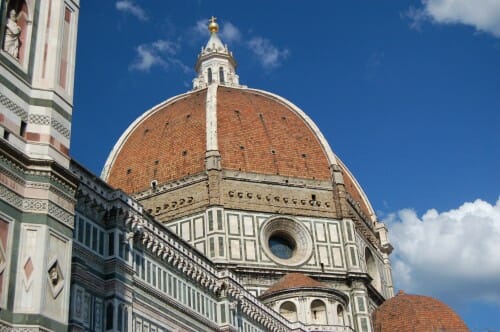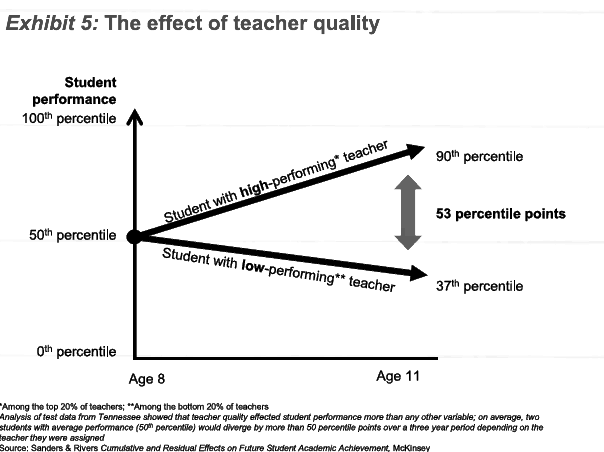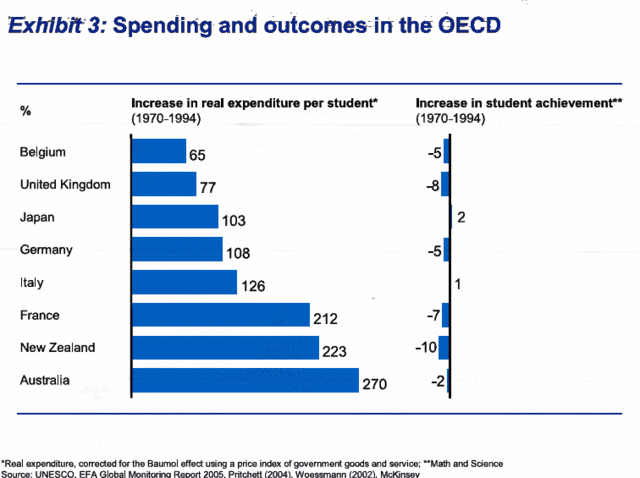After a number of posts on global warming, several of my friends and family have sent me various links and tracts and articles, apparently concerned about me as a Kyoto "unbeliever". It reminds me a lot of my neighbor giving my wife religious pamphlets when she found out we didn't go to church on Sunday. Jerry Pournelle has a good series of posts about getting roughly the same reaction.
So here is a bit of advice: First, keep sending me anything thing that has science in it, I always enjoy reading it. Second, if you are going to send me climate science, make sure you understand where my agnosticism lies: I don't need more articles saying "see, the world has warmed, therefore we need the Kyoto treaty" or "look at the CO2 rise at Hilo station". In my mind, there are five logic steps you need to make to justify Kyoto-type emissions limitations. Everyone sends me proof of the first two steps, but I seldom see science on the last three, which are the most problematic. Here they are, and where my current thinking is on each:
1. Is the world warming? The answer is yes, though ground-based measurements influenced by urban heat islands may be over-estimating the rise, despite corrections. Also, one needs to remember that some of the warming occurred in the early parts of the century, where man-made CO2 is unlikely to be to blame.
By the way, be very careful of advocates' graphs - often the time scale is "managed". Someone sent me this link, of rising temperatures in Central Park. Unfortunately, the graph is carefully selected, and here is the graph with all the data (same data source) shown. I have seen the same game played with this chart several times, showing only the data since 1965, which obviously would tell a very different story. All that being said, I am still convinced the earth is warming some, but what does it tell you when organizations play such exaggeration games with the data - are they being objective scientists or advocates?
2. Is the warming due to man-made CO2? The answer is partially, though perhaps not as much as global-warming activists want to believe. Yes, man-made CO2 has almost certainly increased CO2 concentrations in the atmosphere, but solar activity has also been at a cyclical peak in this century, and many point to this activity as another contributor to warming. Also, something other than man-made CO2 drove a half-degree warming early in the century, so whatever caused that warming may well be contributing to warming in the second half of the century (unless you want to take the dangerously untenable position that whatever drove early century warming stopped at the same time that CO2 started having an effect). Finally, there are still arguments about the quality of the statistical analysis in looking at long term climate trends.
3. How much will man-made CO2 raise temperatures in the future? My answer is some, but not nearly as much as models predict. First, recognize that funding levels for climate research today tend to rise in proportion to how dire the forecast is, so organizations have a financial incentive to over-predict. Second, when current models are applied to history, they over-predict temperature rise. This leads me to worry that they may be over-predicting for the future as well. Yes, they claim to have "corrected" this problem, but in fact they just added fudge factors -- whole fortunes have been lost on Wall Street this way. Third, and the one thing I can confirm from my own knowledge and analysis, climate models GROSSLY over-estimate man-made CO2 production in the future due to enormously flawed economic models. I spend a lot more time disecting these mistakes here, but to summarize, the models take the most inefficient nations, assume little efficiency improvements, then grow their economies like crazy:
Because of this economic error, the IPCC scenarios of the future also suggest that relatively poor developing countries such as Algeria, Argentina, Libya, Turkey, and North Korea will all surpass the United States [in terms of GNP]
4. What is the net cost to the world of global warming? This is where climate science really begins to break down. The answer is that, scientifically, we don't know. We don't even know if it is net bad - warming may be net beneficial. The "bad things" claims have tended to have a "day after tomorrow" sloppiness to them, but the main bad things cited are rising sea levels and increases in violent weather patterns. Note that the second is entirely unproven, and, no matter what any media article says, we have not yet seen any increase in violent weather recently -- the data so far does not support it. As to rising sea levels, there is more science behind the claim but again, we have not yet seen any evidence of it. Most climate scientists will admit that the majority of the warming will occur on winter nights in the coldest regions (e.g. lots of warming of Siberian winters). But arctic ice melt in sea level rise scenarios mainly occurs during summer days. How can this be reconciled? In fact, NASA data shows little or no warming to date in Antarctica or in the Arctic, despite the fact that models say that it should show the most (and therefore the most melting ice).
Beyond the lack of proof is the fact that most global warming activists don't consider or don't want to admit that there are positive effects. For example, warming would lengthen growing seasons in most areas, potentially increasing food production. For example, the Cato Institute reported:
The weather can, of course, be too warm, but that is unlikely to become a major problem if the globe warms. Even though it is far from certain that the temperature will rise, the Intergovernmental Panel on Climate Change (the U.N. body that has been studying this possibility for more than a decade) has forecast that, by the end of the next century, the world's climate will be about 3.6° Fahrenheit warmer than today and that precipitation worldwide will increase by about 7 percent. The scientists who make up this body also predict that most of the warming will occur at night and during the winter. In fact, records show that, over this century, summer highs have actually declined while winter lows have gone up. In addition, temperatures are expected to increase the most towards the poles. Thus Minneapolis should enjoy more warming than Dallas; but even the Twin Cities should find that most of their temperature increase will occur during their coldest season, making their climate more livable.
5. What is the Cost-Benefit trade-offs of mandated CO2 limitations? Again, no one knows and if there is any good science on this, I have not seen it. You can guess that if we have not even figured out if warming is net-bad or net-good, we probably don't have a good handle on cost-benefit trade-offs of treaties like Kyoto. Even without this trade-off analysis, though, we can come to a few conclusions about Kyoto:
So here is my point -- it is possible to believe in the theory of man-made CO2 driving temperature increases and still be skeptical of government action on emissions. Jerry Pournelle has a good series of posts on the same topic.
For other reading, probably the first place to look is the Skeptical Environmentalist by Bjorn Lomborg. Lomborg in this book has probably the best counter-case to the enviro-disaster stories filling the media. He has become an object of absolute hatred among the anti-growth anti globalization fanatics who have latched onto climate change as the key to advancing their anti-technology and anti-capitalist political agenda. The attacks on him have become nearly as edifying about what drives the environmental movement as his book itself. The Economist has a nice article about his book and about the wild-eyed furious reaction of environmental activists to it. The Economist also editorializes here, and you can follow all the criticism and response here on Lomborg's site.
Other sources: This paper is a good roundup of all the issues I have addressed. Cato has a lot of other material here as does the Heartland Institute and at The Commons.
UPDATE:
A great post from Silflay Hraka that is much more eloquent (and concise) than I am is linked here









